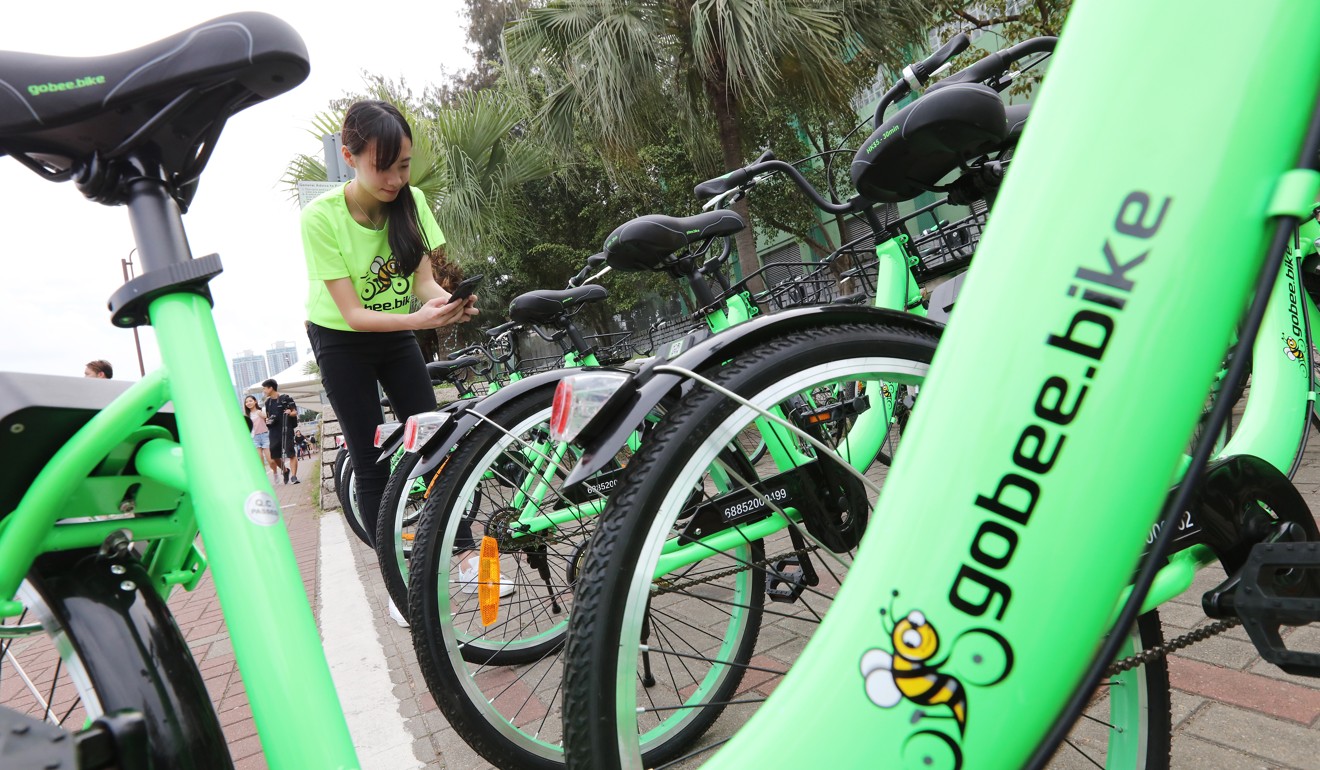
New player to enter Hong Kong bike-sharing market, promising ‘lower prices and better parking plan’
Group of four cycling enthusiasts will test market with crowd-funding campaign, and proceed even if target is not met

Four cycling enthusiasts are set to launch a new bike-sharing mobile application, challenging the status of Gobee.bike – the city’s first and only service – by promising cheaper charges and designated parking spaces.
To test the popularity of the new biking trend, which has taken the mainland by storm, the new players launched a crowd-funding campaign on online platform Kickstarter last week.
One of the founders, Bryan Au Chi-tong, said the team would start talking to district councillors in the next few weeks, and promised a better parking system with a new technology provided by one of the biggest mainland bike-sharing operators.
Au, 55, a veteran rider who worked in Guangzhou for more than a decade, said he was “disappointed” by negative media reports when Gobee.bike launched its services in April, especially with the complaints over the haphazard parking of bicycles.

District councillors over the past month received reports of many bikes left randomly in public car park spaces. Au said the problem could be easily solved with a new technology called “virtual parking space” used by many mainland operators, which requires riders to return bikes to designated parking zones.
If the bikes are not detected by signals in the spaces, the charging metre will not stop.
The practice could avoid disruptions caused by randomly parked bikes in public areas, and also facilitate better management by operators and regulators.
Au claimed that a bike-sharing operator in Guangzhou with 300,000 users had agreed to sell the parking technology to his start-up group.
Au said he had earlier spoken to Gobee’s founder, Raphael Cohen, about a potential technological cooperation, but his offer had been declined.
The most important thing is whether Hong Kong people support bike-sharing
Au did not disclose further details of their communication.
This prompted Au and three of his local cycling friends to start their own brand.
He aims to distribute 20,000 shared bikes in the city – on par with Gobee’s goal – if the crowd-funding results show “great interest” from Hongkongers.
The campaign’s target is to raise HK$3.8 million from 38,000 backers – each contributing HK$100.
But Au said the partners would go ahead with their own savings even if they failed to reach the mark.
“Money is not a problem. The most important thing is whether Hong Kong people support bike-sharing,” he said, adding that the crowd-funding bid served more as a market test.
He estimated HK$3 million would be enough to support rolling out the service in five districts, each with 50 to 100 bikes.
Au said he also planned to charge only HK$1 per hour to encourage Hongkongers to use bikes for their daily commutes. Gobee bike charges HK$5 per half hour.
“We don’t expect to earn a lot of money charging HK$1 per hour,” Au said. He said their goal was to turn Hong Kong into a more bike-friendly city.